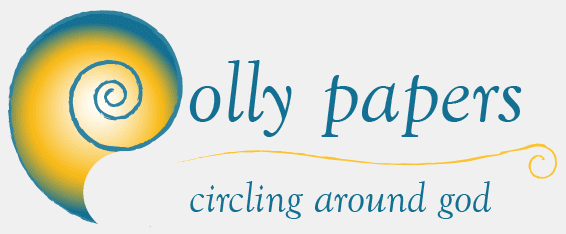
Usually this is not the question. Rather, it’s why isn’t God?
Why isn’t God doing something about the refugees? Why does God allow wars and famine and disease? Why does God let bad things happen every day: hate crimes, deportation, genocide, discrimination and the general destruction of the planet? Why? Why ? Why?
It occurs to me that there is an exquisite irony to these questions. Not only do they pass the buck, but also one cursory glance at the history of humanity shows that all these and more have taken place under the banner of religion.
But my God isn’t like that. The God that I experience is apparent to me in the life and work of Jesus of Nazareth. That’s why I look to his example for the kind of leaders we need so achingly now as the world shakes and trembles. We need women and men that put on the mantle of peace, non-violence and inclusion: people like Malama Yousafzi, Dr. King, Nelson Mandela, Mother Teresa, Mahatma Gandhi, and all people everywhere who resist and protest or kneel down.
A few weeks ago I would have included Aung San Suu Kyi of Myanmar in that group. She was a shining light of resistance against the military junta in Burma, living for years under house arrest. When freed, she became the de-facto leader and the symbol of a new country, Myanmar. In 1991 Suu Kyi won the Nobel Peace Prize, joining an august company of the extraordinarily brave and compassionate human beings like those above.
But I no longer see her in this elite group. Thousands upon thousands of ethnic Muslims in Myanmar, the Rohingya people, are being murdered, their villages burned, then forced into exile on a small, swampy island in Bangladesh. As I write this, Suu Kyi has refused to discuss their plight. Aung San Suu Kyi and her government do not recognize the Rohingya as an ethnic group and have blamed violence and subsequent military crackdowns on those they call “terrorists”. While she does not control the military, as a leader of her country she is in the position to condemn the genocide, which she has not done..
I’m puzzled by her lack of compassion and her failure to intervene. I am even more distressed that the genocide is the action of the majority Buddhists against the minority Muslim population. Where is the way of compassion and peace that we associate with Buddhism? Christianity, Judaism and Islam all share a bloody history; invaders, crusaders and terrorists even now waving the banner of their God. I hoped, perhaps naively, that Buddhism would be different.
Yet, actually, this is not about one’s religion or belief in God. I believe instead that it has to do with the presence or absence of power, worldly power. This is not the power that inspired a Mandela or King or Gandhi. Theirs was the power of faith and courage to take a stand when threatened by violence and imprisonment. It’s the power of the heart to reach other hearts and draw out compassion; to feel the ache of a fellow human being, and to imagine a new order.
In 1988 Aung San Suu Kyi returned to her country. Quoting from the citation that was read when she was awarded the Peace Prize three years later: “She led the opposition to the military junta that had ruled Burma since 1962. She was one of the founders of the National League for Democracy (NLD), and was elected secretary general of the party. Inspired by Mahatma Gandhi, she opposed all use of violence and called on the military leaders to hand over power to a civilian government. The aim was to establish a democratic society in which the country’s ethnic groups could cooperate in harmony.” (italics mine)
What happened between 2010, when she was freed from house arrest, and now? While only she knows the state of her head and her heart, it seems to me that her aim for the country’s ethnic groups to live in harmony looks a lot more like ethnic cleansing. Why? I can only surmise that she has shed her mantle of non-violence to put on the armor of worldly power. Neither Jesus, healing and teaching under Roman oppression, Malala attacked by the Taliban nor Nelson Mandela, shackled by apartheid, spoke their truth from a place of political power. Their power is of a different kind. Theirs is the power of love.
The question still stands: why is/isn’t God? Perhaps we will never know. On the other hand, I trust that somehow there is an answer because there are leaders like them and because I know that there are now and have faith that there always will be people who embody the kind of truth that they taught and lived. For me, they are the answer.
This is the last of my musings on the five questions: Where, what, when, who and why is God. As soon as I began trying to answer them, I knew how impossible, yes, presumptuous it was of me, to try. In the end, they have ended up simply more circles around a Something, glimpsing an essence from a few perspectives. To paraphrase the poet: I am still circling around, and will go on circling.

2 Responses
Great blog Polly and glad you are shedding light on the genocide and the Rowhingya people. The Unitarian Universalist Service Committee (UUSC) president, Tom Andrews, testified before congress about the plight of the Rowhingha’s last spring and got a response to begin an investigation. The UUSC has people working on the ground there and they have to be secretive because of the situation.
And thanks for tackling these big questions about God! It is interesting to see where you go with the questions.
For us atheists, the answer to why God allows injustice might be the Zen 無, “mu”, or “unask the question.” Since God isn’t, the question is unanswerable. From a secular perspective, the question might be “doesn’t the arc of history bend toward justice?” If it doesn’t, then that would be our fault, not the fault of a malevolent or inattentive God. The task of keeping that arc bent in the right direction seems Sisyphean; one war or one election and it snaps back toward injustice. But then, I’m reminded of a New Yorker cartoon, which I wish I could insert here, of an iconic Sisyphus inching his boulder back up the mountain; zooming past him is a young mother pushing a stroller with a toddler and a huge bag of groceries.